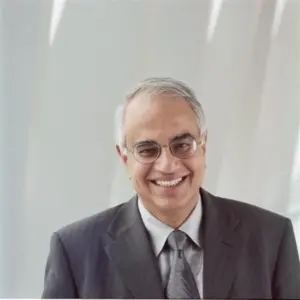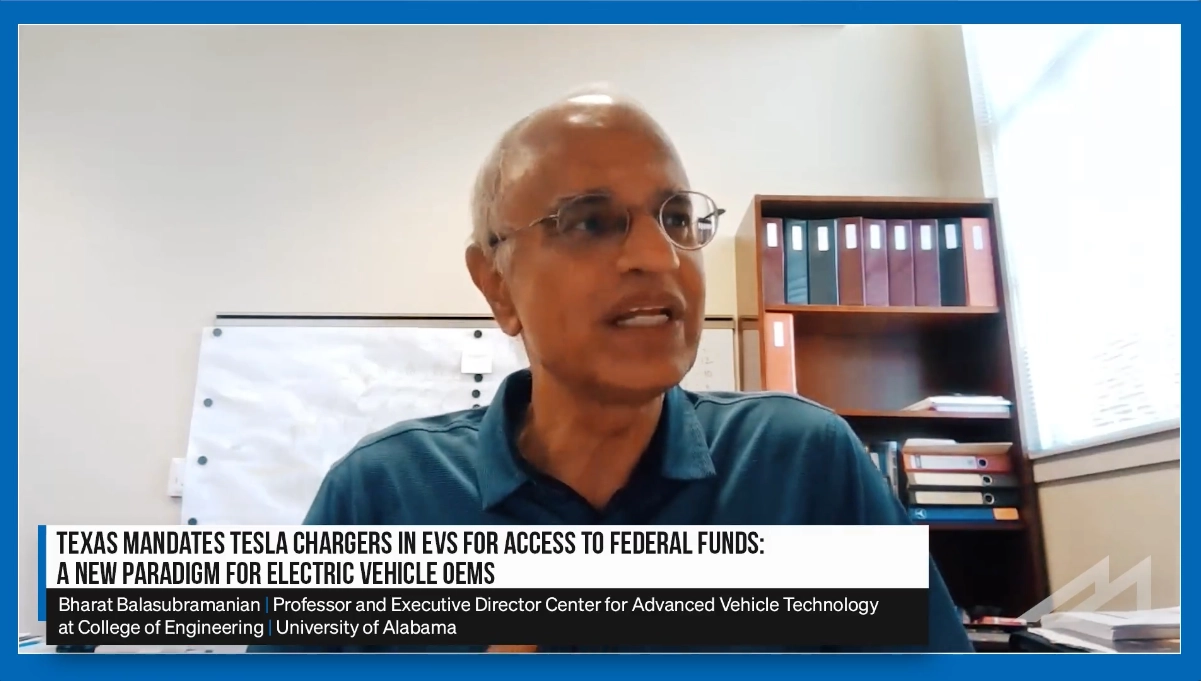

Bharat Balasubramanian
University of Alabama logo Chief Mobility Research and Development Officer, Alabama Transportation Institute University of AlabamaDr. Bharat Balasubramanian, or Dr. B as he is known, was born and raised in India and attained an honors degree in mechanical engineering at the Indian Institute of Technology Bombay, located in Mumbai. He then followed his passion for automotive design to one of its epicenters — Germany — where he went on to earn a master’s and then a doctorate in engineering and launched a 38-year career in research and development with Daimler AG in the Mercedes-Benz Cars Division. In his early career, Dr. B was responsible for numerical simulation and analysis of automatic transmissions and power steering systems. He rose up the ranks at Mercedes-Benz and in 1997 was promoted to vice president in research and development. He was the first non-German VP at R&D in the history of the company. In 2006, he was given additional responsibility as VP of Daimler’s group research and advanced engineering, responsible for telematics and connectivity, safety and automated driving, electric and electronic systems and material and manufacturing technologies. He also restructured and headed MB R&D operations outside Germany, including North America, India and China. Dr. B was the initiator and champion of automated driving, connected vehicles, electric cars and carbon fiber reinforced polymer, or CFRP, light weighting at Daimler. He founded the collaboration between Tesla and Daimler and has remained friends with Elon Musk since 2007. As executive director, Dr. B currently heads the cross-disciplinary Center for Advanced Vehicle Technologies at UA with research thrusts in electric vehicles, connected and automated vehicles and their associated infrastructure.
 Doktor Ingenieur (PhD), Automotive Engineering, Cum Laude
1977-1983
Doktor Ingenieur (PhD), Automotive Engineering, Cum Laude
1977-1983
 Diplom Ingenieur (Master of Engineering), Automotive Engineering Technology
1974-1977
Diplom Ingenieur (Master of Engineering), Automotive Engineering Technology
1974-1977
 Teaching
Teaching
 Automotive Engineering
Automotive Engineering
Recent Posts

The EV Industry Needs Standardization as Convenient as Filling Up at the Gas Pump for Improved Growth
Bharat Balasubramanian - September 1, 2023The burgeoning field of electric vehicle (EV) technology is often characterized by rapid innovation, which makes industry-wide standardization a difficult, albeit crucial, endeavor. But with Texas mandating Tesla technology for EV charging new questions arise.
Read more